Minsk’s muddled media clampdown could jeopardize warming of relations with the West.
Andrei Yahorau: At the Summit in Vilnius, Lukashenko is persona non grata for EU
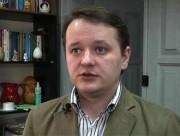
The scenario similar to that happened at the summits in Prague or Warsaw, when the official Minsk deliberately reduced its representation there, is hardly going to happen again.
Such an opinion in the talk with the EuroBelarus Information Service shared Andrei Yahorau, the head of the Centre for European Transformation.
On October 16" Andrei Savinykh, Spokesman for the Ministry for Foreign Affairs of Belarus, confirmed the fact of receipt of the official invitation to the Eastern Partnership Summit in Vilnius. Andrei Yahorau believes, that “it is the formal actions of the EU in relation to the country-member of the EaP program and nothing more than that.”
The expert urges to abstain from searching pitfalls in this purely technical procedure and stop accusing the EU of “betrayal of democracy” or rejection of “European values”.
“The only nuance is off-stage negotiations between European diplomacy and Belarusan government as to who is going to represent Belarus at the Summit. For the EU, Lukashenko is persona non grata at the Vilnius Summit,” Andrei Yahorau is convinced.
He doesn’t think that the scenario similar to that happened at the summits in Prague or Warsaw, when the official Minsk deliberately reduced its representation there, is going to happen again. The political scientist characterized the actions of official Minsk as “obscure”. Still, during the Summit in Prague, Belarusan side has finally signed all the necessary documents; so Andrei Yahorau doesn’t see any grounds for such demarches in Vilnius.
“If Lukashenka makes an attempt to take part in the Vilnius Summit personally, the events can have an interesting development. Belarusan leader is not that crazy to attempt to force his way through Lithuanian border, though It will look very funny if he tries,” Andrei Yahorau jokes.
Regarding the expectations from the Vilnius Summit, “the situation is frozen”:
“There are no visible changes in Belarus-Europe relations. Brussels expects Belarus to release political prisoners and provide certain political liberalization, while Minsk wants visa restrictions to be removed and financing government projects. The situation is still in status quo,” Andrei Yahorau assumes.
Summit of the Eastern Partnership is going to take place on November 28-29 in Vilnius. Ukraine is likely to sign an Association Agreement with the EU, whereas Georgia and Moldova are to start negotiating about signing of the agreement.
Others
-
In Belarus, a rising fear: Will we be the next Ukraine?
The relationship between Russia and Belarus has never been an easy one. The two former Soviet republics have spent the last two decades on a roller coaster ride — sometimes allies, sometimes adversaries in heated public rows.
-
The EU’s Benign Neglect of Eastern Europe
Between November 6 and December 11, 2015, Carnegie Europe continued its Capitals Series. In this second phase, the focus was on the EU’s Eastern neighbors, which the bloc has so often zigzagged over in trying to establish a coherent policy toward them collectively or bilaterally.
-
New ENP and Civil Society’s Role in Focus of the 7th EaP CSF Annual Assembly (Photo)
The 7th Annual Assembly of the Eastern Partnership Civil Society Forum was held in Kyiv on 19-21 November attracting around 300 participants, observers and guests who attended more than 20 sessions and a Networking Fair in the framework of the Assembly.
-
Is social economy a phenomenon for Belarus?
The conference “Social economy: how to be successful despite the crisis” launched in Minsk on October 22.

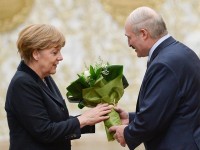
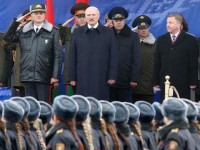
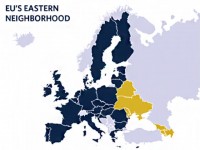
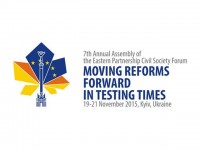
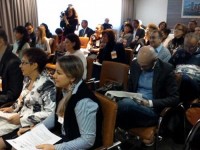


Comments
From farewell to a new Eastern policy and towards a new development
Poland and Germany were both initiators and drivers of a New Eastern policy linked to the Eastern neighborhood and Russia/Soviet Union.